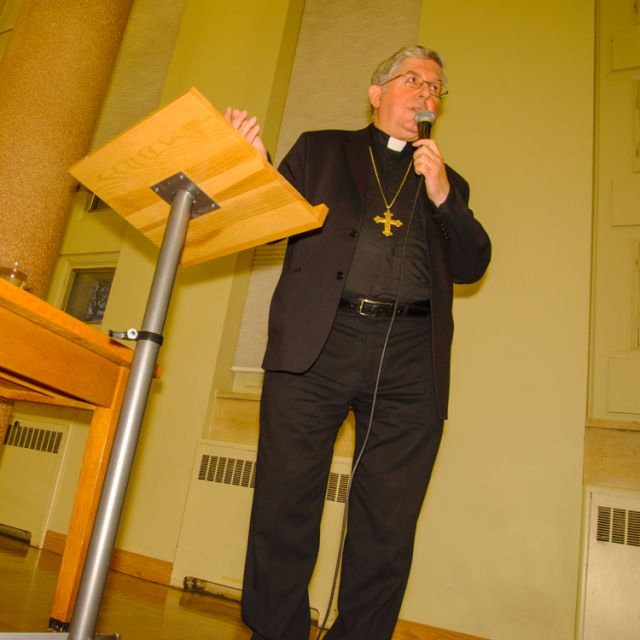The April 25 lecture at the University of St. Michael's College was sponsored by the Canadian Catholic Bioethics Institute.
On abortion and euthanasia, in vitro fertilization and fetal stem cell research, same-sex marriage and premarital sex the majority consensus that opposes Church teaching is not a plot of evil people but the result of "illusions" which lead to a distorted sense of compassion, and a mistaken notion of conscience, said the cardinal.
"People do not see a problem with abortion at one end and euthanasia at the other," Collins said. "Good people sincerely believe that."
The job of Christians, and particularly of lay people who hold primary responsibility for evangelizing the culture, is to propose a deeper, Gospel vision "with joyful boldness," he said.
Collins listed seven unspoken assumptions in Canadian culture that contain fatal flaws, but which also contain "a kernel of truth." We allow emotional subjectivism to trump permanent commitment, subjective relativism to replace objective moral norms, technologically reinforced individualism to leave people isolated and lonely, mistake individualistic and subjective feelings for conscience, separate the unitive and the procreative aspects of sexual love, mistake unending approval for unconditional love, and avoid conflict by sacrificing truth.
"In Canada, nice is our god," said the cardinal.
Collins urged the health professionals to discover a "trinitarian concept of community."
"We need to be more relational — to see ourselves in the plan of God," he said.
Peterborough Bishop Nicola De Angelis said he was glad to hear Collins speak about evangelizing the culture.
"It is such an enormous task," De Angelis said. "We must engage with secular culture. We must not build our own and forget the others."
Georgetown family doctor Paul Zeni said Collins' lecture applies to health care professionals, "because we're dealing with vulnerable people." But it also applies to all Catholics.
"We are essentially the evangelists and the Church is here to support us," Zeni said. "That sounds like a way of going forward. It applies in health care like it applies everywhere else if we are true Christians. It's about the way we act in community. We have to learn how to be like Christ among other people."

